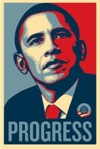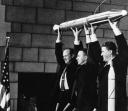It’s difficult to find old high-school friends on the Web. Many of them don’t have any reason to publish pages with bylines or about themselves. It’s even harder when their names have changed since they left school (i.e. most of my friends from that time). That makes it tough to do a casual “where are they now?” search on Google. Social networks like Facebook don’t help much if you’ve been out of school more than a decade, and alumni-finder sites tend to be horrible little pay-for-everything silos.
I realize that many people probably don’t want to be found under their old names, but I do, because there were some really cool people I knew back then and I know they’ve probably come into their own since. Even if they don’t have reason to publish on the Web, they might find themselves doing a casual search for my old name, so I’d like to help that link to my current online identity. The best way I’ve come up with is to make a simple Chris Craig at UCHS page that does nothing but link to my profile here. I’m hoping that’ll be enough to make the connection in the Googlebrain, but we’ll see.
Any other ideas? Have you run into this problem yourself?

 And the hair, it came forth as though carried on a wave. And the chin was covered, and the cheeks, and the bits just under the ears, and the neck almost down to the chest. But alas, the upper lip stayed bereft, as least as far as anyone might tell. And the
And the hair, it came forth as though carried on a wave. And the chin was covered, and the cheeks, and the bits just under the ears, and the neck almost down to the chest. But alas, the upper lip stayed bereft, as least as far as anyone might tell. And the 
